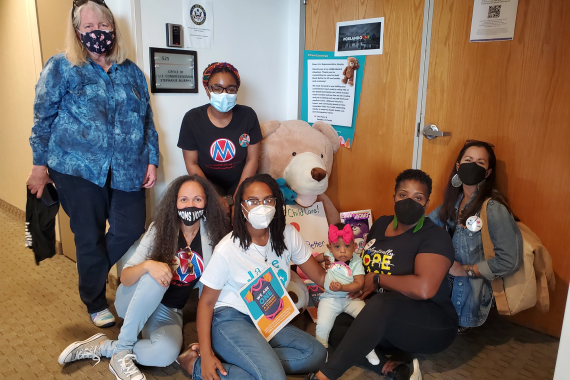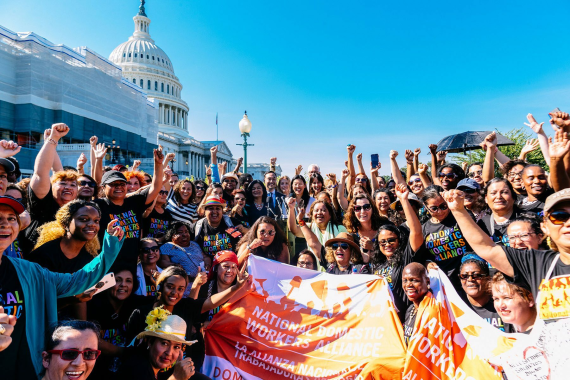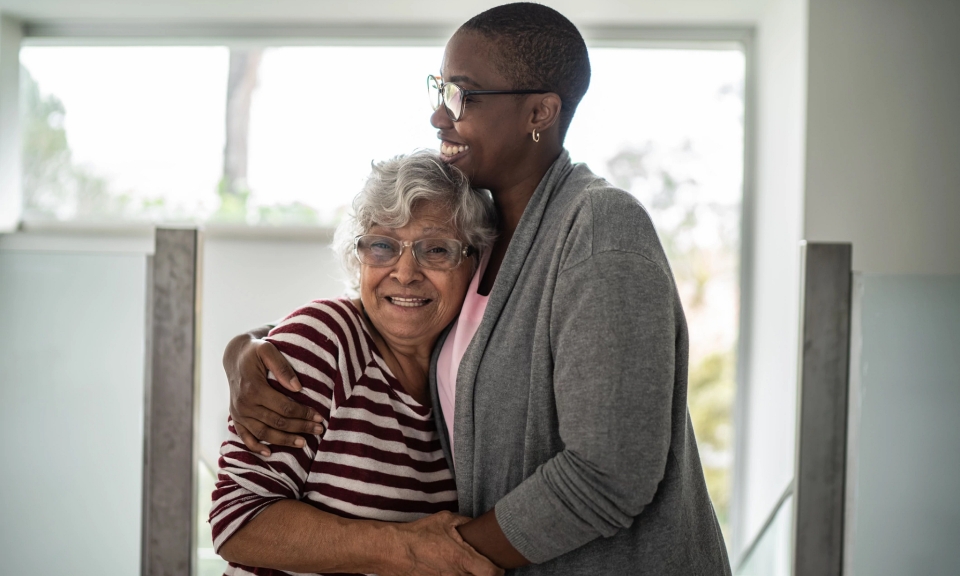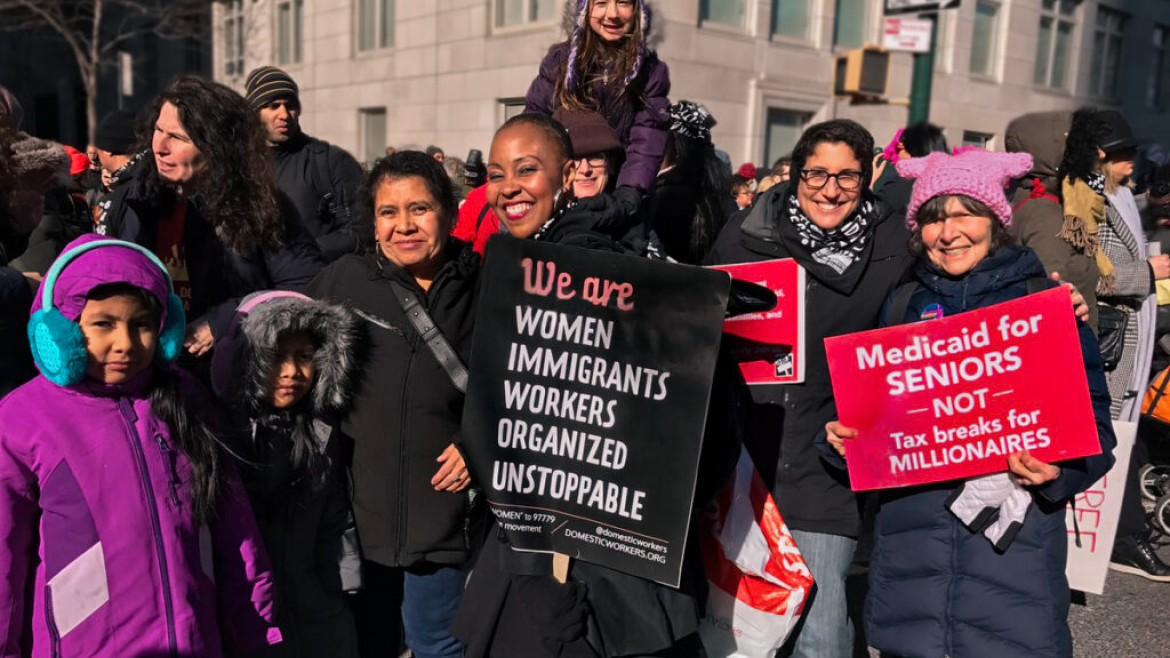When women hold economic power, they have the freedom to shape their own futures.
Economic power is essential to ensuring women* have control over their lives, their personal safety and their families’ well-being. Yet, lack of paid leave policies, affordable child care, labor protections and antiquated gender norms about women’s roles in the workplace and at home limit women from gaining these freedoms.
Women currently represent the majority of low-wage U.S. workers, holding jobs with few benefits, such as paid sick or family leave, and in environments that leave workers with few workplace protections. This is especially true in essential service fields such as care work, where women are rarely afforded the rights, protections and pay available in other labor sectors.
When women have a financial and social safety net, they can fully participate in and grow in the labor force; have safer work and home environments; and have the choice to provide care and support for their households or stay in the workforce. Together with our partners, we aim to remove barriers to women’s advancement in the labor force and create an infrastructure that supports women’s ability to build economic power, benefiting families and our economy.
70%
Of mothers with children under age 18 are active in the U.S. workforce. (Source)
49¢
On each $1 is what Latina women are paid compared to their white non-Hispanic male counterparts. For Black women, it is 58¢. (Source)
85%
Of home care workers are women. With inconsistent work hours, home care workers typically earn $16,100 annually. (Source)
10.2%
Decrease in the risk of poverty among mothers with infants in California due to the state’s paid family leave program. (Source)
What We Do

Our work focuses on advancing paid family leave, accessible child care and equal pay for women, including living wages for low-wage women and women of color who disproportionately work in underprotected or unprotected labor markets.
We believe policy change is the gateway to achieving these goals. We invest in state and national policy agendas targeting these issues and building an ecosystem of advocacy organizations to work across sectors so that they can increase their voice and impact.
Across all these investments, we aim to center the voices of women of color who are creating new pathways for economic power and amplify their leadership as they pave the path to change.
Our Approach
We support efforts to secure economic power for all women through transformative policy change, narrative change and protections for low-wage workers.
Strengthen cross-movement building
We support coalitions and campaigns working across issues to make care work visible, valued, respected and salient as an organizing issue and build a cohesive care agenda.
Increase policy advocacy and effective implementation
We partner with organizations leading policy advocacy efforts on equitable and affordable care policies like paid parental leave, paid sick leave, accessible child care, wage equity, and preventing workplace violence. We also partner with organizations leading the implementation and enforcement of these hard-fought labor protections and rights for workers at the state and national levels.
Our Grantees
From national coalitions to grassroots networks, our grantees are at the forefront of demanding infrastructure reform, policy changes and cultural shifts that give women agency to make decisions in the workplace and at home.
View more grantees in our Gender and Reproductive Equity Grantmaking portfolio
Building a Universal, Publicly Supported Care Infrastructure
A groundbreaking funder collaborative, the Care for All with Respect and Equity (CARE) Fund is investing $50 million over five years to fuel the economy, improve outcomes for kids, promote equity and enable people with disabilities and older adults to live independently with safety and dignity.

Increasing Economic Security for Families
With more than a million members and over 100 aligned organizations, MomsRising is working to increase family economic security, end discrimination against women and mothers, and build a nation where both businesses and families can thrive.

Supporting Domestic Workers
National Domestic Workers Alliance (NDWA) works to win respect, recognition, labor rights and protections for the more than 2.5 million nannies, house cleaners and home care workers who do the essential work of keeping us and our loved ones safe, healthy and comfortable.

ISSUE SPOTLIGHT
What is Care Work?
Care work encompasses various services that caregivers provide to support another person’s needs related to age, disability and illness. While these services are essential to society, care workers have fewer legal protections, lack access to adequate support and are paid less than workers in other labor sectors. This explainer covers the history of care work, the challenges care workers face today and what is required to build a robust care infrastructure.
*Our Terminology
We support every person's right to define their gender identity. For the purposes of our grantmaking and shaped by Schusterman's commitment to equity, our definition of “women” includes cisgender women, transgender women, femme-identified people, and gender-nonconforming people.


